Reed: So, my brother Griffin and I watched that new movie, The Creator…
Griffin: And it stank. Bad.
Reed: What are you talking about? It was fantastic!
Griffin: Fantastically slipshod, you mean!
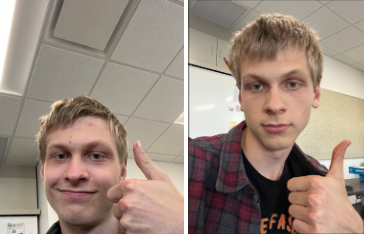
Reed: Slipshod? Slipshod?! That movie is a cinematic triumph!
Griffin: It’s a barrage of lazy writing!
Reed: Wait, back up. We should probably give some context.
The Creator is set in the Earth of 2065, when artificial intelligence – which, by this point, is visible everywhere in human life – has turned on humanity.
Griffin: Through a beginning sequence of late-20th-century-style fake TV footage, we are informed that AI were responsible for detonating a nuclear device in Los Angeles, triggering a war between humans and machines. This pits the US against the still AI-friendly government of New Asia. (One reviewer, Siddhant Adlakha of joysauce.com, criticized this detail as insensitively smushing together a multiplicity of Asian countries and people.)
Reed: Our hero is Joshua (John David Washington), a disaffected commando–who else would he be?–still grieving the loss of his wife Maya (Gemma Chan), member of an AI resistance group.
Griffin: Until what was lost…is found.
Reed: One fateful night, representatives of the U.S. Government contact Joshua with incredible news–his wife has been discovered, definitely 100% not-dead, deep in pro-AI territory in New Asia. Also there–a fabled superweapon that could turn the tide of the war in AI’s favor. Our Josh strikes a deal with the suits–go to New Asia, get the weapon, and bring it back home, and he’ll be allowed to look for his wife while he’s in the neighborhood.
Griffin: But while Joshua might have been expecting a better gun or a bigger bomb, the weapon is something else entirely: an AI child (nicknamed “Alphie”, played by Madeleine Yuna Voyles), gifted with the ability to control technology.
Reed: Joshua finds himself having to shepherd the steel-plated shrimp to safety–discovering shocking truths about the conflict along the way.
Griffin: Which brings me to my first complaint about this movie: Joshua and Alphie’s bonding is glaringly fake. Their whole relationship begins when Josh literally kidnaps this kid, and when he has a hard time getting her to tell him where his wife is, he’s not shy about threatening to have her disassembled and find the information manually, in the remains of her skull.
Reed: But it’s their growing father-daughter relationship that keeps them together! By the end of the movie, he can’t bear to be separated from her.
Griffin: But what does it grow from? None of the events in this movie make Josh and Alphie grow closer. The entertaining shoot-out in an apartment and the invasion of a New Asian village are both good candidates for such scenes – I mean, what strengthens relationships more than running through a hail of laser fire? – but they both come only after the two of them have bonded. They have one – count ‘em, one – scene of actual relationship development, on a bus ride when Alphie asks what Heaven is – and even then, it’s clear the writers (Chris Weitz and Gareth Edwards, who also directs the film) are just forcing them together for the sake of the plot.
Reed: But that bus ride is all they need! When Josh explains that he knows he’s not a good enough person to go to heaven, Alphie empathizes that, as a machine and not a person, neither can she. The two start to find common ground, thanks in large part to Alphie’s humanly-impossible powers of compassion and moral purity–powers that allow the two to continue for as long as they do without it all ending in blood and circuits. Alphie’s kind processor makes it possible for Josh to slowly open up, giving him room to become a genuine father figure to Alphie.
Griffin: Well, what about those “shocking truths” you mentioned Joshua discovering? In the film, they’re inserted into dialogue like a battery into a calculator–crudely, with more focus on functionality than film. One of the most fundamental ones, the truth about the LA explosion, is simply sprung on us out of nowhere–and even then, it’s done without verve. The character drops the revelation as calmly as if he were explaining which type of wood was used to build the boat he and Joshua are sitting in.
Reed: Well, look–like with any good movie, there’s a lot going on here! The film was shot in over 80 locations, including in Cambodia, Vietnam and Nepal, giving us gorgeous, expansive visuals of everything from neon-lit metropolises to New Asian rice fields to space stations high above the Earth. The action moves seamlessly from beat to beat, helped greatly by multiple scenes of transit–on buses, barges, planes, and more, shepherding the characters from one site of the action to another.
And how about that action?! Wide, glowing explosions billowing toward the audience! Blaster fire ripping across both sides of the battle! It’s not hard to believe that this is what a war in 2065 would look like. All of this is complemented by the stellar acting of John David Washington and Madeleine Yuna Voyles, who, respectively, sell Joshua’s jaded disaffection and Alphie’s tranquil innocence without a hitch.
Griffin: …Okay, fine, the explosions were pretty nice.
Reed: And you don’t just have to take my word for it. We saw the film with our friend Mabel Johnston, who gave the production her seal of approval.
“I had doubts, but it was actually pretty great,” Mabel told us. “At first, it was [a] pretty stereotypical robot sort of movie…like ‘opposite Terminator,’ I guess.” On the other hand, “the soundtrack was great. You know I’m all about music, the soundtrack was great. And it really, like, pulls on the heartstrings…The special effects were really good.”
Griffin: Here’s a concerning thing, though: The Creator has gotten some flak for the way it portrays Asian people. The issue of the concept of “New Asia” from Siddhant Adlakha’s article, linked above, is joined by several other criticisms, such as the lack of substance for most Asian characters who don’t speak English. Meanwhile, NPR’s Justin Chang finds grimness in the way the film hearkens to the Vietnam War, with scenes of American battalions terrorizing villages of people. Chang echoes Adlakha’s concern over the trope they call “techno-orientalism”: associating Asian people and/or culture with advanced, futuristic technology. (You can learn more about the harm of this trope in this article from i-D, on Ramona Jingru Wang, a photographer whose series My friends are cyborgs, but that’s okay critiques techno-orientalism.)
Reed: Ooh, that’s a good point. I guess the film does have a lot of issues. And you’re right–writers do need to pay attention and avoid putting those tropes in movies, because then a film that Asian folks could enjoy might simply alienate them. But that’s the struggle of culture: a lot of the time, you have to take the good with the bad, and if you’re willing to do that, there’s still a lot about The Creator to enjoy. And if you really just don’t think you can watch this, the great thing is that you don’t have to. Because however special and important movies are, they’re still just imaginary, and you get to take or not take your imagination wherever you want.
Griffin: What do you think, Reed? All in all, is this movie one to watch?
Reed: Well, it has stuff to work on…
Griffin: …In both its tropes and its writing in general.
Reed: But I think it could be really rewarding to go to a theater and just try it out.
Griffin: Ultimately, this film does have things to like: unique futuristic tech, badass action, skillful acting, awesome visuals.
Reed: So you heard it here first, folks: the next thing The Creator will create for you is a cinematic experience you’ll never forget!





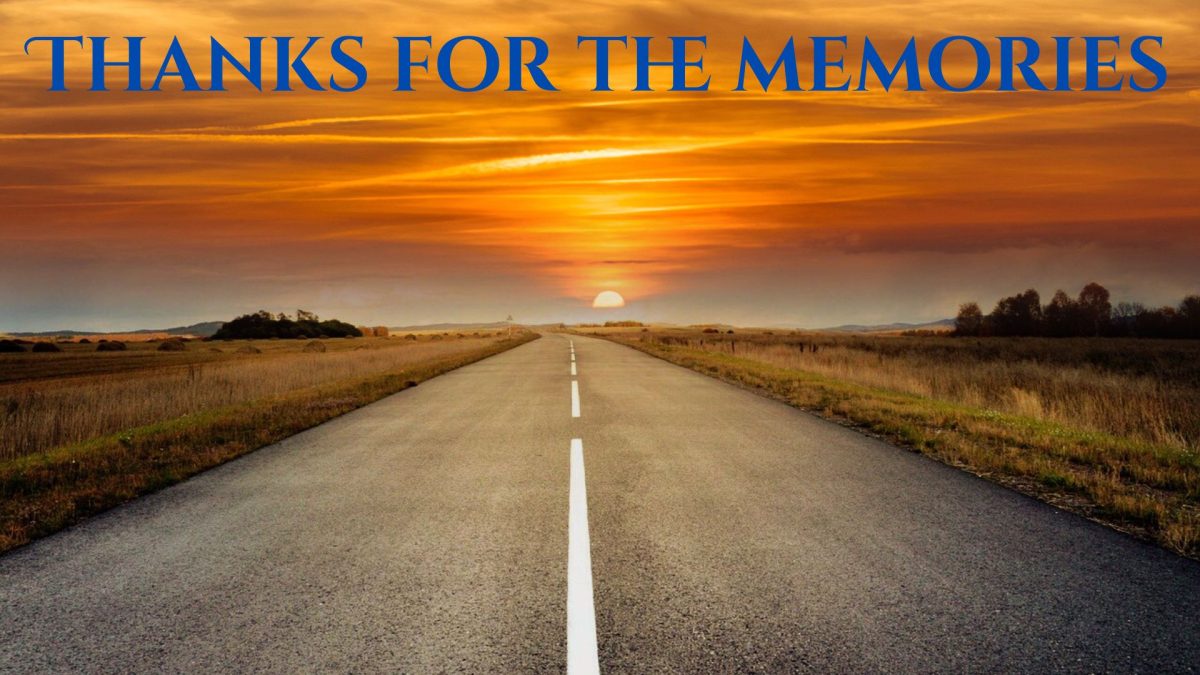
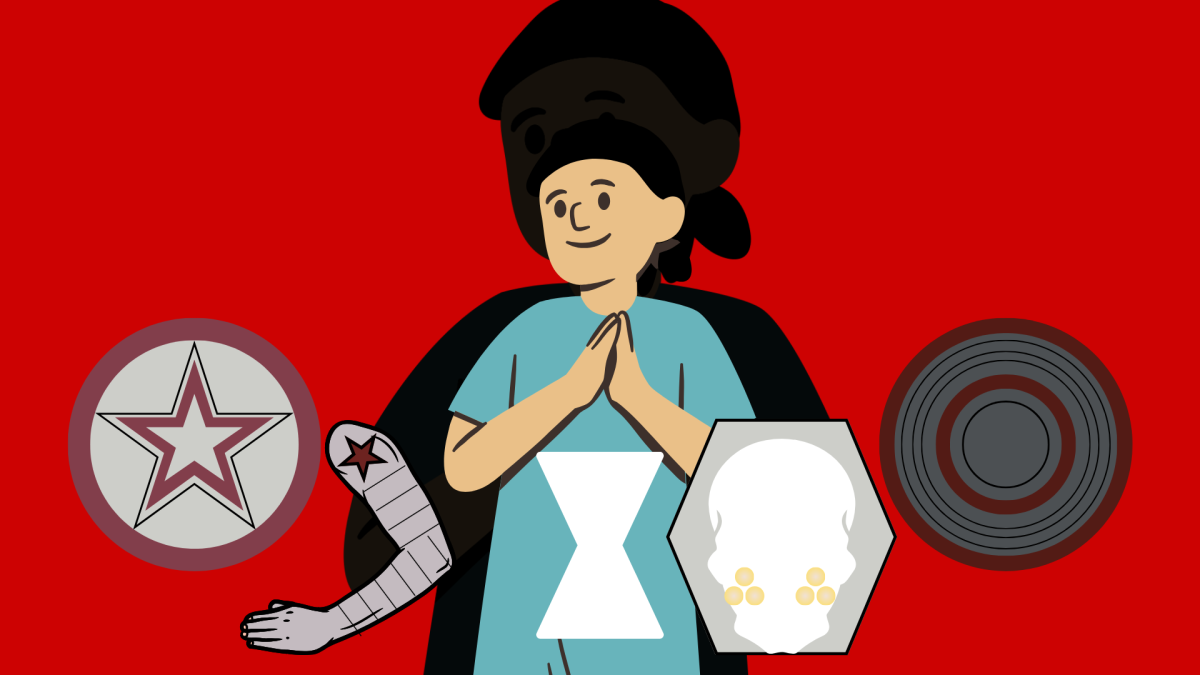
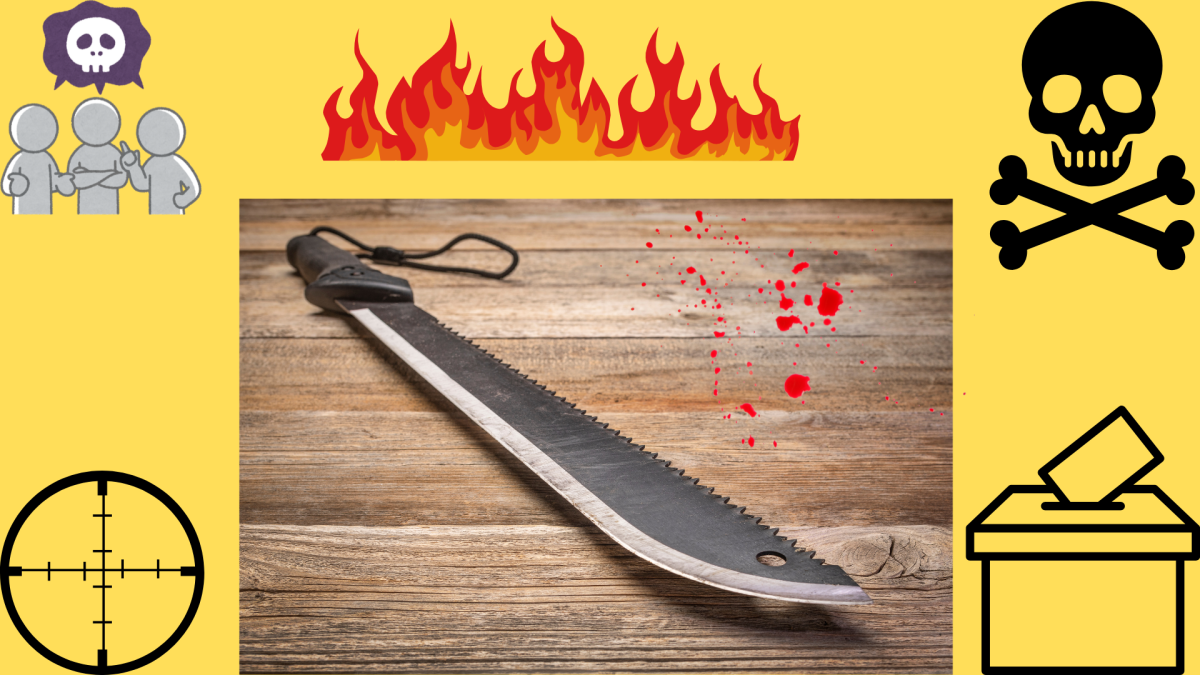
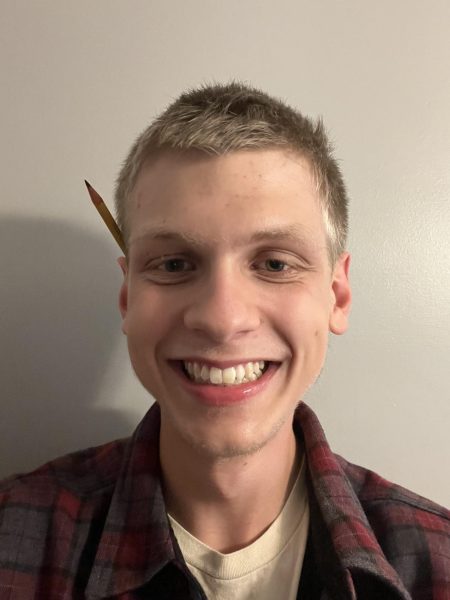

Cynthia Fey • Oct 10, 2023 at 9:32 am
Fun conversation! Thanks for your spirited dialogue. Don’t forget to add a Spoiler Alert next time! This piece made me even more excited to see the movie, and I really appreciate the new awareness of fraught Asian tech stereotypes. Your language is creative and fun to read, but I do have one concern—the use of “we” when you are talking about Hollywood power structures. “We” can be a word that creates a “they,” which carries the risk of othering. Thanks again for your review; I’m looking forward to more of your lively discussions!